Couples Counseling vs. Group Therapy: What’s Better?
Many couples wonder which is better: couples counseling or group therapy for addiction treatment. The truth is, both approaches have proven effective, but the right choice depends on your specific circumstances, needs, and recovery goals. Understanding the benefits of couples therapy vs group therapy addiction treatment can help you make an informed decision that sets your relationship up for long-term success.
This comprehensive guide explores the effectiveness of behavioral couples therapy compared to group treatment, helping you understand when to choose individual couples counseling over group sessions. At Couples Rehabs, we’ve seen both approaches transform lives with our evidence-based therapy programs, and we’re here to help you understand which couples addiction treatment individual vs group approach might work best for your unique situation.
The decision between these two evidence-based approaches isn’t about finding a universal “better” option—it’s about discovering what’s better for you. Let’s explore the research, benefits, and considerations that will guide you toward the most effective path for your recovery journey.
Understanding Couples Counseling vs. Group Therapy for Addiction
When comparing couples counseling vs. group therapy: what’s better for addiction recovery, it’s essential to understand what each approach offers. Couples counseling addiction treatment focuses specifically on the relationship dynamics that both contribute to and can support recovery from substance use disorders. This approach recognizes that addiction affects both partners and that healing must address the relationship itself as a key component of recovery.
Group therapy for addiction recovery, on the other hand, brings together multiple individuals or couples facing similar challenges. Participants benefit from shared experiences, peer support, and the realization that they’re not alone in their struggles. The group dynamic creates a community of accountability and mutual encouragement that can be incredibly powerful for maintaining sobriety.
The fundamental difference lies in focus and format. Couples counseling provides intensive, personalized attention to your specific relationship patterns, communication issues, and recovery goals. Group therapy offers broader community support, diverse perspectives, and the cost-effective benefit of learning from others’ experiences and successes.
Both approaches fall under the umbrella of evidence-based therapy, which means they’ve been scientifically proven to help couples overcome addiction challenges. The question isn’t whether they work—research confirms both are effective—but rather which approach aligns better with your learning style, comfort level, and specific recovery needs.
Understanding this distinction is crucial because it helps you focus on fit rather than superiority. Your choice should be based on practical considerations like your communication preferences, privacy needs, budget constraints, and the specific challenges your relationship faces in recovery.
The Case for Couples Counseling in Addiction Treatment
Benefits of Behavioral Couples Therapy
Research consistently demonstrates that couples counseling addiction treatment produces remarkable outcomes for relationships affected by substance use disorders. Behavioral couples therapy (BCT) has been extensively studied, with findings showing that couples who engage in this approach achieve higher abstinence rates than those receiving only individual treatment.
The effectiveness of behavioral couples therapy compared to group treatment lies in its personalized focus on relationship dynamics. BCT helps couples identify and change the specific patterns that enable addiction while building new behaviors that support recovery. This might include creating daily recovery contracts where both partners commit to sobriety-supporting actions, developing better communication skills, and establishing healthy boundaries.
One of the most significant benefits is how couples counseling addresses the trauma that addiction creates within relationships. When trust has been broken through lies, financial problems, or dangerous behaviors, couples need specialized help to rebuild their foundation. Individual couples counseling provides the safe, private space necessary for these vulnerable conversations.
The approach also recognizes that both partners need healing. The non-addicted partner may have developed codependent behaviors, anxiety, or depression as a result of their partner’s addiction. Couples counseling addresses these issues simultaneously, ensuring both people receive the support they need to create a healthy relationship dynamic.
Additionally, couples counseling excels at preventing relapse by teaching partners how to support each other’s recovery without enabling destructive behaviors. Couples learn to recognize early warning signs, implement intervention strategies, and maintain accountability without creating a parent-child dynamic in their relationship.
When Couples Counseling Works Best
Couples counseling proves most effective when both partners are committed to recovery and willing to examine their own contributions to relationship problems. It works particularly well when couples need to address specific relationship traumas, rebuild trust, or develop personalized strategies for maintaining sobriety together.
This approach is ideal for couples who value privacy and prefer working through sensitive issues without an audience. Some relationship problems—such as infidelity, financial betrayal, or intimate partner violence—require the confidential setting that couples counseling provides.
Couples counseling also works best when partners have different recovery needs or when their addictions affect the relationship in unique ways. The individualized attention allows therapists to address specific dynamics, communication patterns, and triggers that might not be relevant to other couples in a group setting.
The Power of Group Therapy for Addiction Recovery
How Group Therapy Builds Community and Accountability
Group therapy for addiction recovery harnesses one of humanity’s most powerful healing forces: community connection. When couples participate in group therapy, they discover they’re not alone in their struggles, which immediately reduces the shame and isolation that often accompany addiction.
The group dynamic creates natural accountability that can be more powerful than individual counseling. When you share your goals and challenges with a group, you’re more likely to follow through on commitments because you know others are counting on you. This peer accountability often motivates people to stay engaged in treatment longer and take their recovery more seriously.
Group therapy also provides exposure to diverse perspectives and coping strategies. In individual therapy vs group therapy settings, group participants learn from each other’s successes and mistakes, gaining insights they might never discover in couples counseling alone. Hearing how another couple navigated a similar challenge can provide hope and practical solutions.
The cost-effectiveness of group therapy makes recovery accessible to more couples. Since one therapist can work with multiple couples simultaneously, the cost per couple decreases significantly compared to individual couples counseling. This financial accessibility can be crucial for couples whose addiction has created financial strain.
Types of Group Therapy in Addiction Treatment
Several types of group therapy serve different purposes in addiction recovery. Process groups focus on exploring emotions, relationships, and personal growth through group discussions and interactions. These groups help couples understand how their relationship patterns affect their recovery and vice versa.
Psychoeducational groups provide information and teach skills related to addiction recovery. Couples might learn about the science of addiction, relapse prevention strategies, communication techniques, or stress management tools. These groups combine education with practical skill-building exercises.
Support groups, such as those following 12-step principles, offer ongoing encouragement and accountability. While not technically therapy, these groups provide crucial peer support that complements professional treatment.
Skills-based groups focus on developing specific abilities needed for recovery success. This might include anger management, mindfulness practices, job search skills, or parenting strategies for couples with children affected by their addiction.
Research-Based Comparison: Effectiveness Data
Success Rates and Outcomes
When examining which is better couples counseling or group therapy for addiction, research provides compelling evidence for both approaches. Studies on behavioral couples therapy show that couples achieve abstinence rates 10-15% higher than those receiving individual treatment alone. These couples also report significantly improved relationship satisfaction and lower rates of domestic violence.
Group therapy research demonstrates equally impressive outcomes, particularly in terms of treatment retention and long-term recovery maintenance. Participants in group therapy programs show higher rates of treatment completion and continued engagement in recovery activities after formal treatment ends.
The effectiveness of behavioral couples therapy compared to group treatment varies depending on the specific challenges couples face. For couples dealing with relationship trauma or complex communication issues, individual couples counseling often produces better outcomes. For couples who need community support and cost-effective treatment, group therapy frequently achieves superior results.
Long-term studies suggest that couples who receive either form of evidence-based treatment maintain their recovery gains better than those who receive no treatment or non-evidence-based approaches. The key factor isn’t the format but rather the quality of the intervention and how well it matches the couple’s specific needs.
Cost-Effectiveness Analysis
Financial considerations often influence treatment decisions, making cost-effectiveness a crucial factor in the couples counseling vs. group therapy debate. Group therapy typically costs 30-50% less than individual couples counseling, making it more accessible for couples facing financial constraints due to addiction-related problems.
However, couples counseling may prove more cost-effective in the long run if it prevents relapse more effectively for your specific situation. The intensive, personalized attention might address problems more quickly, potentially reducing the total treatment time needed.
Insurance coverage varies for both approaches, but many plans provide better coverage for group therapy since it’s considered more cost-effective by insurance companies. Some couples find that combining approaches—starting with group therapy for foundational skills and community support, then transitioning to couples counseling for specific relationship issues—provides the best value.

Individual Therapy vs Group Therapy: Key Factors to Consider
Privacy and Comfort Levels
Your comfort with sharing personal information significantly impacts treatment effectiveness. Some couples feel more comfortable discussing sensitive topics like sexual intimacy, financial problems, or family trauma in the privacy of couples counseling. Others find that sharing with peers reduces shame and provides valuable perspective.
Consider your personalities and communication styles. Introverted individuals might initially prefer couples counseling but could benefit from the social skills practice that group therapy provides. Extroverted people might thrive in group settings but need the focused attention of couples counseling to address deep-seated relationship issues.
Privacy concerns extend beyond comfort levels to practical considerations. Some couples worry about confidentiality in group settings or fear encountering other participants in their community. While group therapy maintains strict confidentiality rules, couples counseling eliminates these concerns entirely.
Learning Styles and Personality Types
Your learning preferences should influence your choice between couples counseling and group therapy. Visual learners might benefit from group therapy’s demonstrations and role-playing exercises, while auditory learners could prefer the focused dialogue of couples counseling.
Some people learn best through observation, making group therapy ideal for watching other couples work through similar challenges. Others learn through intensive discussion and personalized feedback, making couples counseling more effective.
Consider your motivation sources as well. Do you respond better to peer pressure and community accountability, or do you prefer working toward goals privately with professional guidance? Your answer can guide you toward the most motivating treatment format.
When to Choose Individual Couples Counseling Over Group Sessions
Several situations clearly favor when to choose individual couples counseling over group sessions. If your relationship involves recent trauma, active domestic violence, or severe trust violations, couples counseling provides the safe, controlled environment necessary for healing. These sensitive issues require careful handling that group settings cannot provide.
Couples counseling works best when you have specific, complex relationship dynamics that need intensive attention. If your communication patterns are particularly dysfunctional, if you’re dealing with infidelity, or if you have different recovery timelines, individual attention becomes crucial.
Consider couples counseling if either partner has social anxiety, severe depression, or other mental health conditions that make group participation difficult. The one-on-one format allows therapists to accommodate these needs more effectively.
Financial resources also matter. If you can afford couples counseling and prefer the personalized attention, this investment often pays dividends in faster progress and more targeted interventions.
Privacy needs should influence your decision as well. Some couples work in public-facing careers or small communities where group therapy participation might create unwanted complications. Couples counseling eliminates these concerns while providing equally effective treatment.
Combining Both Approaches: The Best of Both Worlds
Many successful recovery programs recognize that couples don’t have to choose exclusively between couples counseling addiction treatment and group therapy for addiction recovery. Combining both approaches often provides optimal outcomes by leveraging the unique benefits of each format.
A common effective sequence involves starting with group therapy to build foundational recovery skills and community support, then transitioning to couples counseling to address specific relationship dynamics. This progression allows couples to develop coping skills and reduce shame in a supportive community before tackling sensitive relationship issues privately.
Alternatively, some couples benefit from concurrent participation in both formats. They might attend weekly group sessions for ongoing support and peer accountability while scheduling monthly couples counseling sessions to address specific relationship challenges as they arise.
At Couples Rehabs, we’ve found that this integrated approach often produces the best long-term outcomes. Couples develop a broad support network through group therapy while receiving personalized attention to their unique relationship needs through couples counseling. This combination addresses both individual recovery and relationship healing comprehensively.
The key is working with treatment providers who can coordinate these approaches effectively, ensuring that insights from group therapy inform couples work and that relationship progress enhances group participation.
Making the Right Choice for Your Recovery Journey
Ultimately, deciding between couples counseling vs. group therapy: what’s better depends on your specific circumstances, preferences, and goals. Consider these key questions as you make your decision:
What are your primary treatment goals? If rebuilding trust and improving communication are priorities, couples counseling might be ideal. If you need community support and cost-effective treatment, group therapy could be better.
How do you learn best? Couples who benefit from personalized attention and private exploration might prefer couples counseling. Those who learn from others’ experiences and thrive in community settings might choose group therapy.
What resources do you have? Consider your budget, insurance coverage, schedule, and emotional energy. Both approaches require commitment, but they demand different types of resources.
What challenges do you face? Complex relationship trauma might require couples counseling, while general addiction recovery skills might be effectively learned in group settings.
Remember that this choice isn’t permanent. Many couples start with one approach and transition to another as their needs change throughout recovery. The most important decision is to begin treatment—you can always adjust your approach as you learn what works best for your relationship.
Frequently Asked Questions
1. How long does couples counseling vs. group therapy typically take? Couples counseling usually involves 12-20 weekly sessions over 3-6 months, while group therapy programs often run 8-16 weeks with ongoing maintenance groups available. Individual needs determine actual duration for both approaches.
2. Can we do both couples counseling and group therapy at the same time? Yes, many couples benefit from combining both approaches. Concurrent participation allows you to develop community support through group therapy while addressing specific relationship issues in couples counseling.
3. Is couples counseling or group therapy more effective for preventing relapse? Research shows both approaches significantly reduce relapse rates compared to individual treatment alone. Couples counseling may be more effective for relationship-specific triggers, while group therapy excels at providing ongoing community accountability.
4. What if my partner doesn’t want to participate in group therapy? If privacy concerns prevent group participation, couples counseling provides an excellent alternative. Some couples start with individual couples counseling to build confidence before transitioning to group therapy.
5. How much does couples counseling cost compared to group therapy? Group therapy typically costs 30-50% less than couples counseling per session. However, insurance coverage and treatment duration vary, so total costs depend on your specific situation and needs.
6. Which approach works better for couples where both partners have addiction? Both approaches can be effective, but couples counseling often works better initially when both partners need to establish sobriety. Group therapy can provide valuable peer support once both partners have achieved some stability.
7. What happens if we encounter other participants from group therapy in our community? Group therapy maintains strict confidentiality rules, and participants agree not to discuss what happens in sessions outside the group. Most people respect these boundaries, but couples counseling eliminates this concern entirely.
8. Can we switch from group therapy to couples counseling if it’s not working? Absolutely. Treatment approaches should be flexible and responsive to your needs. Many couples try different formats before finding what works best for their specific situation.
9. Which approach addresses trauma more effectively? Couples counseling typically provides better trauma treatment due to its private, controlled environment. However, some trauma survivors find that group therapy reduces shame and provides valuable peer support for healing.
10. How do we know if we’re making progress in either approach? Progress indicators include improved communication, reduced conflict, maintained sobriety, increased relationship satisfaction, and better coping with triggers. Your therapist will help track these measures regardless of format chosen.
Taking the Next Step: Your Path to Recovery Starts Now
The decision between couples counseling and group therapy doesn’t have to be overwhelming. What matters most is that you’re taking action to heal your relationship and overcome addiction together. Both approaches have helped countless couples rebuild their lives, strengthen their relationships, and maintain long-term sobriety.
At Couples Rehabs, we understand that every couple’s journey is unique. That’s why we offer both individual couples counseling and group therapy options, allowing you to choose the approach that feels right for your relationship—or combine both for maximum benefit. Our experienced therapists specialize in addiction recovery and relationship healing, providing the evidence-based treatment that research proves most effective.
Your relationship has already survived the challenges of addiction, which shows incredible strength and resilience. Now it’s time to build on that foundation with professional support that can guide you toward lasting recovery and deeper connection. Whether you choose the intensive, personalized approach of couples counseling or the community support of group therapy, you’re making a powerful investment in your future together.
Don’t let another day pass wondering what might be possible for your relationship. The research is clear: couples who receive professional treatment achieve better outcomes than those who try to heal alone. You’ve already taken the hardest step by recognizing you need help—now let us help you choose the treatment approach that will give you the best chance at lasting success.
Contact Couples Rehabs today to discuss your options and begin your journey toward recovery. Our compassionate team can help you understand which approach might work best for your specific situation and get you started on the path to healing. Your relationship deserves this investment, and recovery is possible when you have the right support system in place.
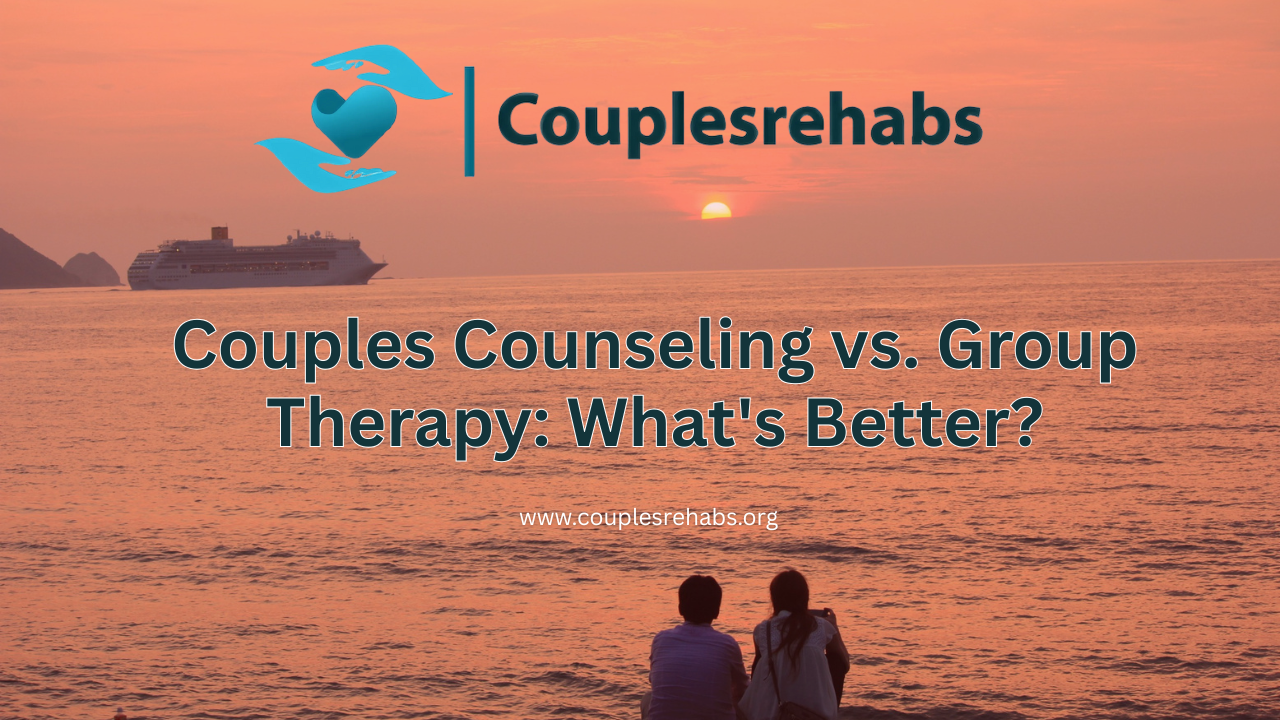
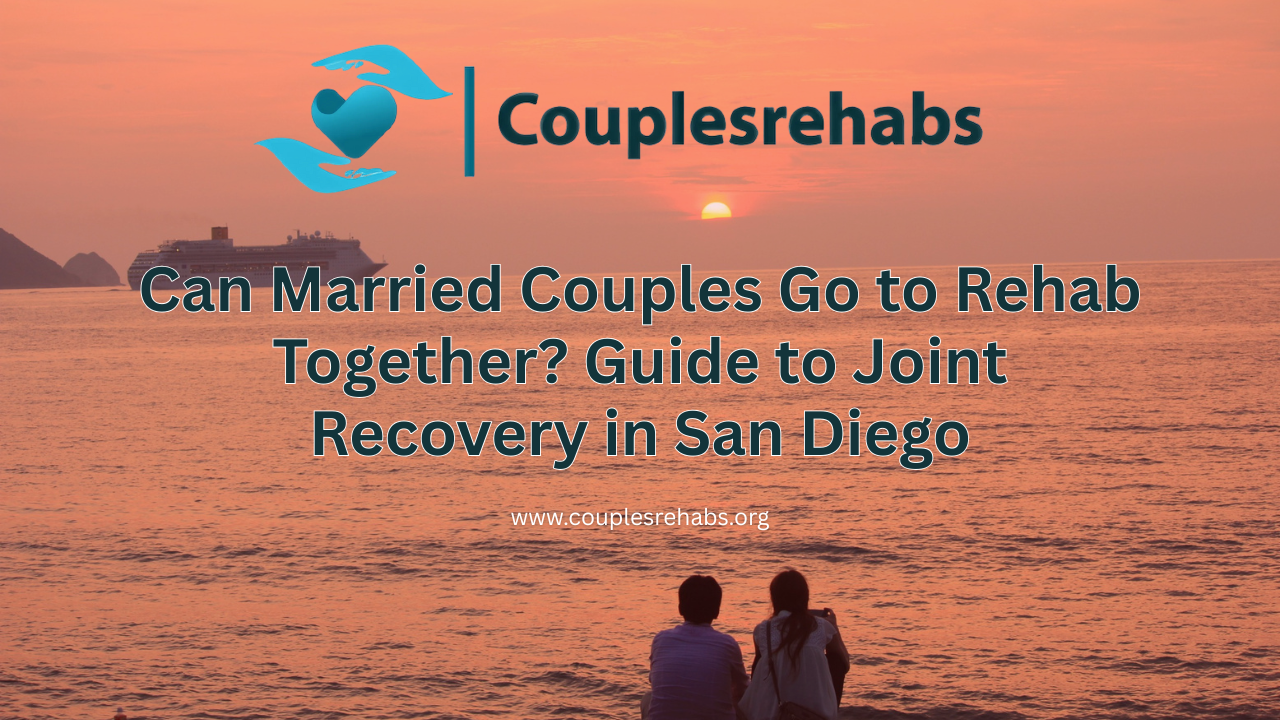



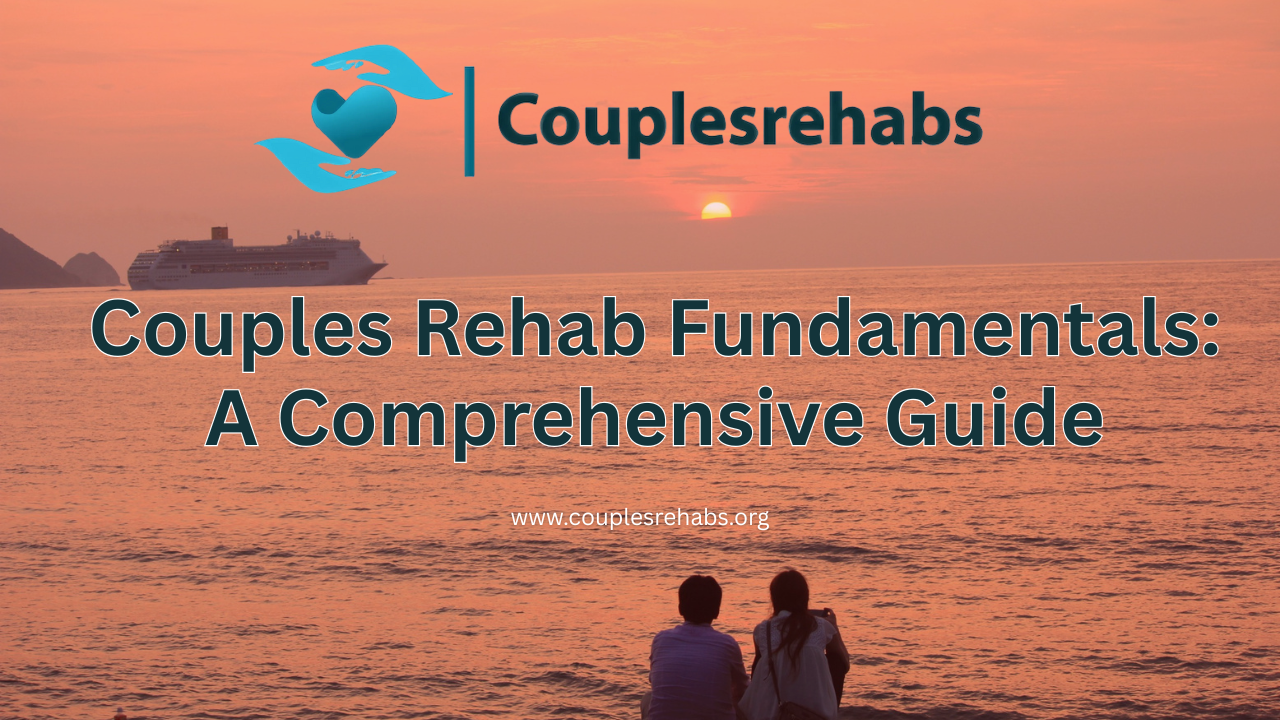







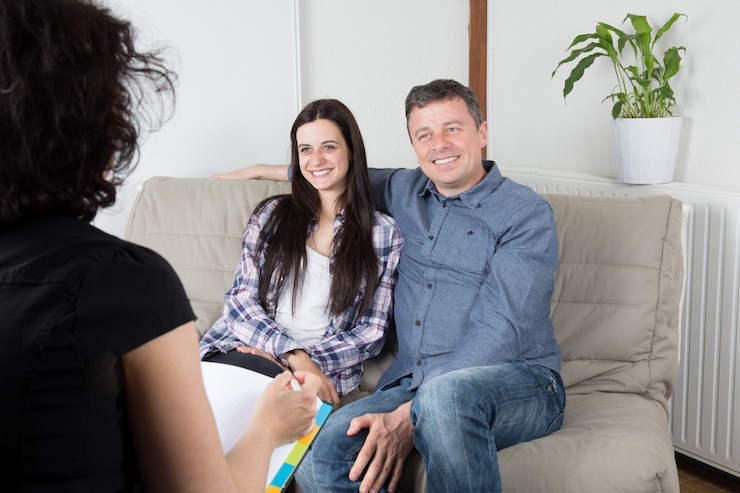



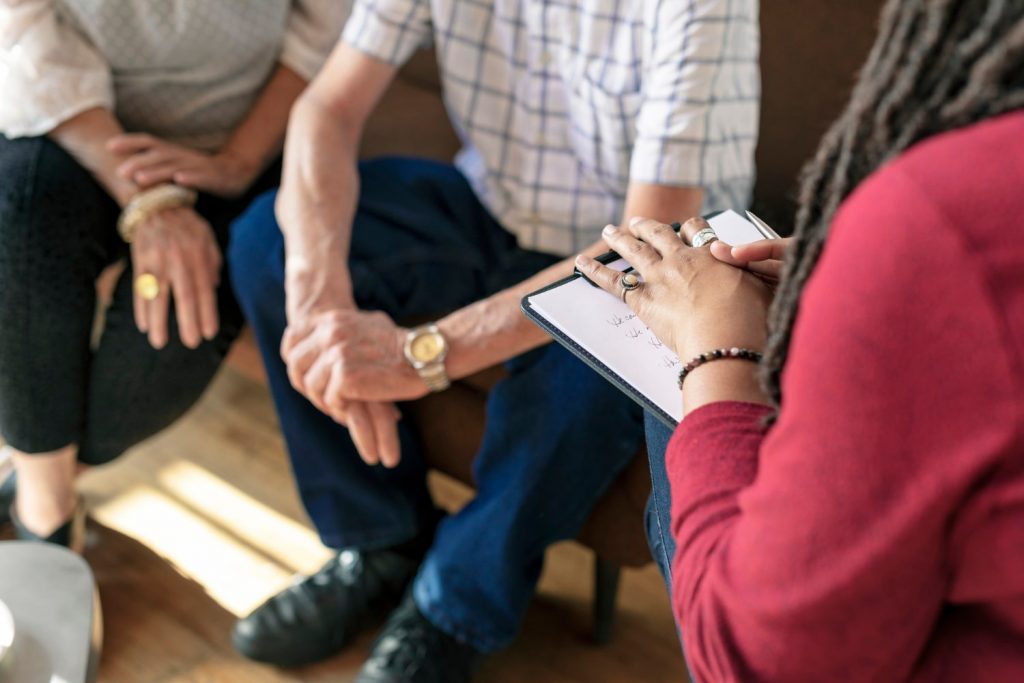

Recent Comments